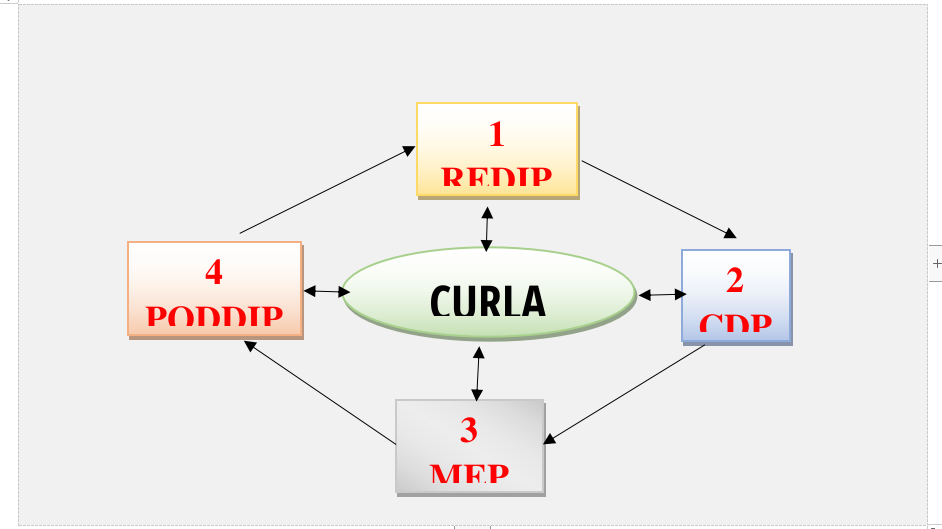Side Events
CENTRE FOR URBAN-RURAL LINKAGES IN AFRICA (CURLA)
Introduction
The Centre for Urban-Rural Linkages in Africa (CURLA) was established on 17th February 2023. CURLA will take over all activities of a collaboration project on Covid-19 Impacts on Transportation of Food and Related Commodities in the Urban-Rural Nexus (COVID-19 ITFCURN) in five African countries” by the University of Nairobi and UN-Habitat, jointly with the Ministry of Urban Development and Housing (Cameroon), Ministry of Housing in Niger State (Nigeria) Université Gaston Berger de Saint-Louis du Sénégal (Senegal), and University of Zimbabwe (Zimbabwe). The Centre will continue and upscale the initiatives of the COVID-19 ITFCURN project across the African region focusing on its broad mandates of inculcating the role and function of urban-rural linkages (URL) in sustainable development in all its forms.
Objectives
Overall Objective
CURLA will promote a synergetic and symbiotic urban-rural linkages (URL) approach in anchoring and deepening economically productive, socially inclusive, environmentally sensitive and spatially efficient sustainable development in the African region.
Specific Objectives
The specific objectives are to:
- Conduct research and disseminate information on URL-informed sustainable development and related matters;
- Develop the capacity of the policymakers, planners and development managers in URL applications and awareness in communities;
- Mentor the youth and upcoming policy makers, planners and development managers in practices that promote the role of URL in sustainable development through urban and territorial (rural) planning and in relation to practitioners of other relevant academic and professional backgrounds; and Promote policy debate and dialogue among policymakers, planners and development managers and in communities to better the role of URL in sustainable development.
FOUR PROGRAMMES OF CURLA
CURLA activities will be carried out in Four Programmes shown in Figure 1.

REDIP - Research and Dissemination Programme
CDP - Capacity Development Programme
MEP - Mentorship Programme (MEP)
PODDIP - Policy Debate and Dialogue Programme
CURLA will leverage synergies that multi-disciplinary and multi-sectoral collaborations and partnerships will offer in working with departments, local and regional governments, public agencies, Non-state actors, the private sector as well as Universities and centres of excellence in African countries. The Centre will also forge partnerships with development agencies and international bodies to learn from the best URL practices in sustainable development, poverty reduction, promoting business and good governance.
The formal launch of the Centre is scheduled to be held on a date between 26th June and 14th July 2023 to usher in the full operationalization of its programmes.
Preparation for a full presentation on the Centre at Kenya Urban Forum (KUF) in Naivasha is underway.
Title: Co-Developing Sustainable and Just Mobility solutions in Kenya through multi-stakeholder partnerships
Description:
As populations in cities across the world increase, transforming urban transport systems – and lowering their carbon footprint and environmental impact – has become a critical factor for sustainable urbanization and the fight against climate change. In addition, there is urgent need for more equitable, just and safer transport, with only half of the population that has convenient access to public transport. An accelerated progress is needed in the transport sector to bring the world closer to the achievement of SDG 11 on Sustainable Cities. A change of priorities is needed with renewed focus on multi-modal transport systems, comprised of public transport integrated with walking and cycling.
The responsibility for implementing policies and measures for low carbon, inclusive and sustainable mobility is best shared between a multitude of actors incl. the public and private sectors, and in a coordinated manner between the national and local levels.
The side event will showcase promising practices from around Kenya and highlight issues around the need to professionalizing public transport through a just transition, developing sustainable mobility plans, enhancing road safety through better street designs, electrification of transport, as well as improving gender equity and inclusion.
Speakers will discuss the need for multi-stakeholder and multi-sector partnerships across public and private actors to co-develop successful and just solutions based on local ownership and robust business models.
The session will be organized by UN-Habitat in collaboration with partners incl. the Institute for Transportation and Development Policy (ITDP), the Friedrich Ebert Foundation (FES), Bloomberg Philanthropies, among others, and will showcase integrated solutions on the transition towards sustainable mobility in Kenya. Proposed programme:
2 Hours Session:
- Welcome, Governor Nakuru County
- Opening Speech: Scaling-up policy measures and shifting finance towards sustainable mobility options, Mr. Martin Eshiwani, Head, Road Transport Services unit at Ministry of Transport and Infrastructure, Kenya (tbc)
- Keynote Statement: Ensuring Inclusion and Equity in Kenya’s transport interventions, Ms. Crystal Asige, Senator representing persons living with disabilities (tbc)
- Presentations of promising practices from around Kenya:
1. Kisumu
- Sustainable Urban Mobility Planning in Kisumu, Kisumu County Government (7 mins)
2. Mombasa
- Safe School Zones, Jaffrey Academy, Mombasa
- The “red carpet” for pedestrians in Mombasa, Hon. Daniel Otieno Manyala, County Executive Committee member, Department of Transport, Infrastructure and Public Works County Government of Mombasa,
3. Nairobi:
- Promoting multi-modal integration through electric tuktuks as feeder services to public transport, Kenneth Mungai, Autotruck (7 mins)
4. Kenya wide:
- Reclaiming Streets for Walking and Cycling in Kenya, Chris Kost, Africa Director, ITDP
- Outlook: Pathways towards sustainable mobility in Kenya through the commitment of Member States
1. Ambassador 1 – Japan?
2. Ambassador 2 – Sweden?
3. Ambassador 3 – Botswana?
Moderated by the urban mobility team in UN-Habitat.
Objectives:
- To discuss successful governance frameworks and multi-stakeholder partnership approaches for sustainable mobility solutions
- To provide insights on promising practices and integrated mobility solutions that help fostering a just transition in the transport sector
- To inspire replication of the successfully tested approaches to other countries
- To encourage commitments towards scaling up sustainable mobility interventions in Kenya
